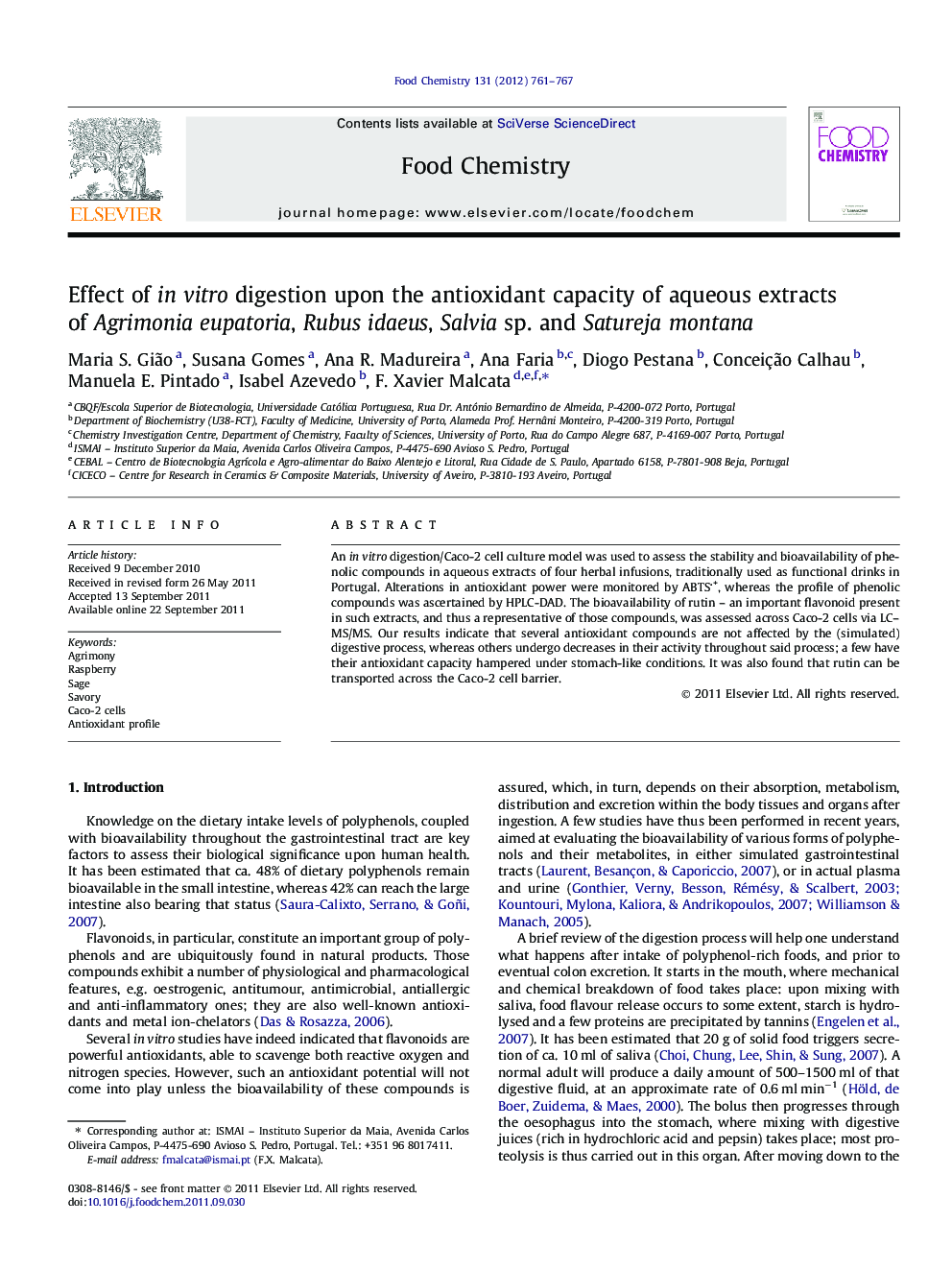| کد مقاله | کد نشریه | سال انتشار | مقاله انگلیسی | نسخه تمام متن |
|---|---|---|---|---|
| 1188108 | 963481 | 2012 | 7 صفحه PDF | دانلود رایگان |

An in vitro digestion/Caco-2 cell culture model was used to assess the stability and bioavailability of phenolic compounds in aqueous extracts of four herbal infusions, traditionally used as functional drinks in Portugal. Alterations in antioxidant power were monitored by ABTS+, whereas the profile of phenolic compounds was ascertained by HPLC-DAD. The bioavailability of rutin – an important flavonoid present in such extracts, and thus a representative of those compounds, was assessed across Caco-2 cells via LC–MS/MS. Our results indicate that several antioxidant compounds are not affected by the (simulated) digestive process, whereas others undergo decreases in their activity throughout said process; a few have their antioxidant capacity hampered under stomach-like conditions. It was also found that rutin can be transported across the Caco-2 cell barrier.
► Nonconventional antioxidants are in great demand, but their bioavailability constrain the physiological effects.
► Effect of gastrointestinal transit on bioactive compounds was assessed in vitro via simulated digestion and Caco-2 cells.
► Results confirmed suitability of model to assess stability and bioavailability of phenolic compounds in plant aqueous extracts.
Journal: Food Chemistry - Volume 131, Issue 3, 1 April 2012, Pages 761–767